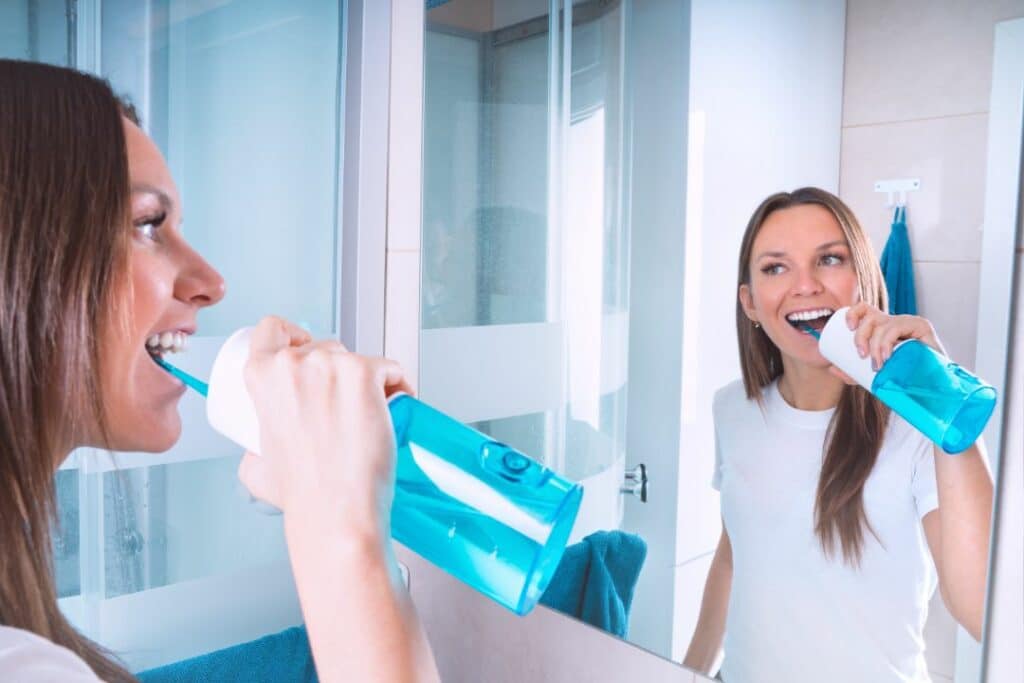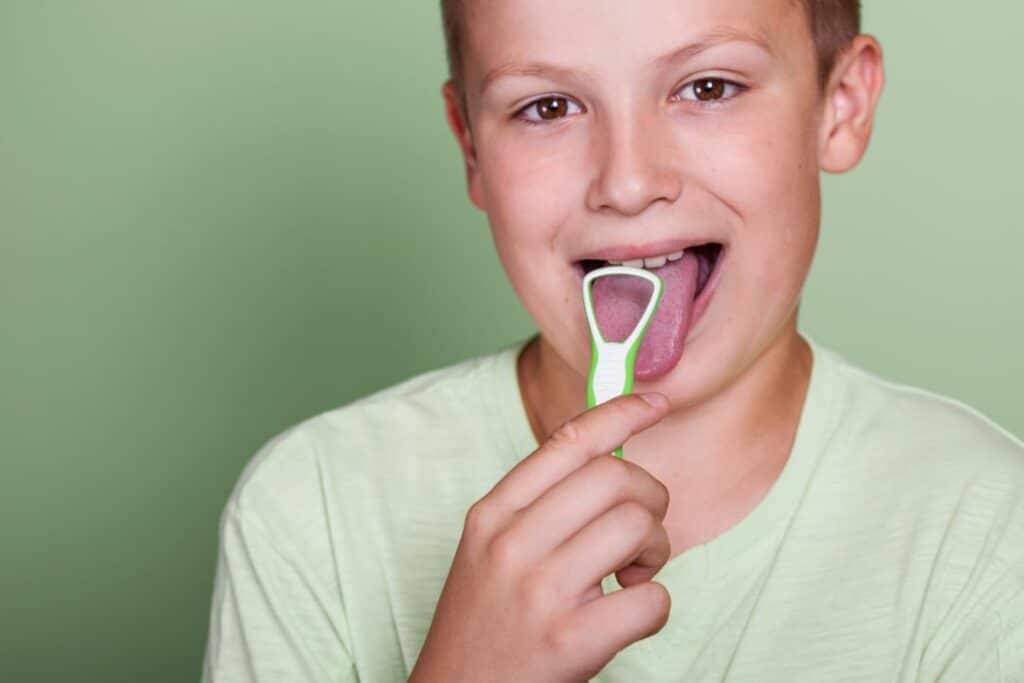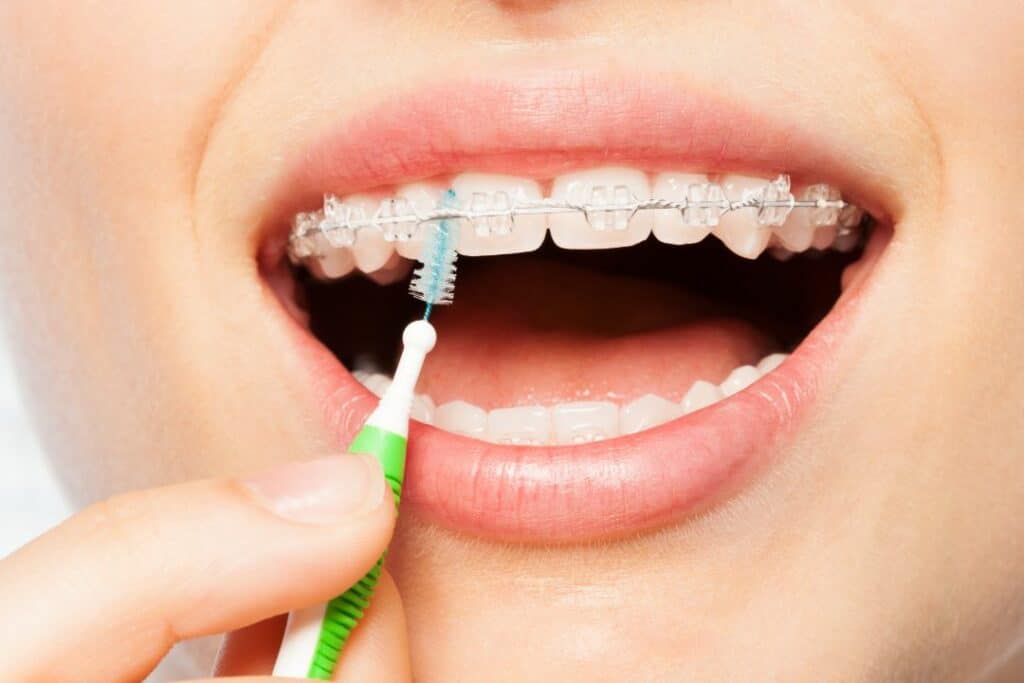We all know brushing our teeth twice a day is crucial for maintaining good oral hygiene, but is it enough? While brushing forms the foundation of dental care, additional tools can significantly enhance our oral health routine.
This blog post explores some often-overlooked oral hygiene tools and their benefits, providing insights for dental hygiene enthusiasts, health-conscious individuals, and parents with young children.
Let’s dive into the world beyond brushing and discover how these tools can improve your dental care regimen.
Comparing Classic Brushing and Flossing with New Innovations

For decades, traditional brushing and flossing have been the go-to methods for maintaining oral hygiene. These methods are effective at removing plaque and food particles, but they may not reach every nook and cranny in your mouth. Modern innovations like electric toothbrushes, water flossers, and interdental brushes offer more comprehensive cleaning solutions.
Electric toothbrushes provide consistent motion and pressure, ensuring thorough cleaning. Water flossers use a pulsating stream of water to remove debris between teeth, making them ideal for people with braces or dental implants. These advancements in dental technology enable us to achieve better oral health with minimal effort.
Detailed Look at Additional Tools
When considering oral hygiene tools, it’s essential to explore various options that cater to specific needs and preferences.
Electric Toothbrushes
Electric toothbrushes are a game-changer in oral hygiene. They come with various features like oscillating heads, timers, and pressure sensors to ensure optimal brushing.
Benefits:
- Superior plaque removal.
- Reduced risk of gingivitis.
- Easier to use for people with limited mobility.
Water Flossers
Water flossers, also known as oral irrigators, use a stream of water to clean between teeth and along the gumline.
Benefits:
- Effective at removing plaque and food particles.
- Gentle on gums, reducing the risk of bleeding.
- Ideal for people with braces or dental work.
Interdental Brushes
Interdental brushes are small brushes designed to clean between teeth, where regular toothbrushes can’t reach.
Benefits:
- Excellent for removing plaque and debris.
- Reduces the risk of gum disease.
- Easy to use and effective.
Tongue Scrapers
Tongue scrapers help remove bacteria and debris from the surface of the tongue, improving oral hygiene and breath.
Benefits:
- Reduces bad breath.
- Improves taste sensitivity.
- Helps prevent oral thrush.
Mouthwash
Mouthwash can be a valuable addition to your oral care routine, providing benefits beyond fresh breath.
Benefits:
- Reduces plaque and gingivitis.
- Kills bacteria that cause bad breath.
- Helps prevent tooth decay.
Benefits of Incorporating Additional Tools

Incorporating tools like electric toothbrushes, water flossers, and tongue scrapers into your routine offers numerous benefits:
Improved Plaque Removal
These tools are designed to reach areas traditional brushing and flossing might miss, ensuring a more thorough clean.
Better Gum Health
Using advanced tools can reduce the risk of gum disease by effectively removing plaque and bacteria from around the gums.
Fresher Breath
Tongue scrapers and mouthwash help eliminate bacteria that cause bad breath, leaving your mouth feeling fresher for longer.
How to Choose the Right Tools
Selecting the right oral hygiene tools depends on various factors, including cost, effectiveness, and ease of use. Here’s a guide to help you make informed decisions:
Consider Your Needs
Identify what specific issues you need to address, such as plaque buildup, gum health, or bad breath.
Evaluate Effectiveness
Look for products backed by scientific research and positive user reviews to ensure they deliver on their promises.
Factor in Cost
Consider your budget and choose tools that offer the best value for money without compromising on quality.
Tips for Implementing a Complete Oral Hygiene Routine

Incorporating additional tools into your daily oral care routine can be seamless with these tips:
Create a Schedule
Consistency is key. Establish a routine that includes brushing, flossing, and using additional tools at specific times each day.
Start Slowly
Introduce one new tool at a time to avoid feeling overwhelmed. Gradually build up your routine as you become comfortable with each tool.
Follow Instructions
Ensure you use each tool correctly by following the manufacturer’s instructions and seeking advice from your dentist if needed.
Conclusion
Going beyond brushing can have a profound impact on your oral health. By incorporating tools like electric toothbrushes, water flossers, and tongue scrapers into your routine, you can achieve cleaner teeth, healthier gums, and fresher breath. Take the first step towards a more comprehensive oral hygiene regimen and experience the benefits for yourself.
FAQs
Why should I use an electric toothbrush instead of a manual one?
Electric toothbrushes provide consistent brushing motion and pressure, making them more effective at removing plaque and reducing the risk of gingivitis.
Are water flossers better than traditional flossing?
Water flossers are particularly beneficial for people with braces, dental implants, or dexterity issues. They offer an effective and gentle way to clean between teeth and along the gumline.
How often should I use a tongue scraper?
It’s recommended to use a tongue scraper once a day, preferably in the morning, to remove bacteria and debris from the tongue.
By integrating these additional tools into your oral care routine, you can enhance your dental health and enjoy a brighter, healthier smile. Explore our recommendations and take the next step towards optimal oral hygiene today!
Site map
Services
Contact Us
T: 07 854 8905
E: info@thehdc.co.nz
3/111 Thomas Road,
Rototuna, Hamilton
copyright © 2025 Hamilton Dental Centre | Credit Terms | Web development by Digital Hothouse

